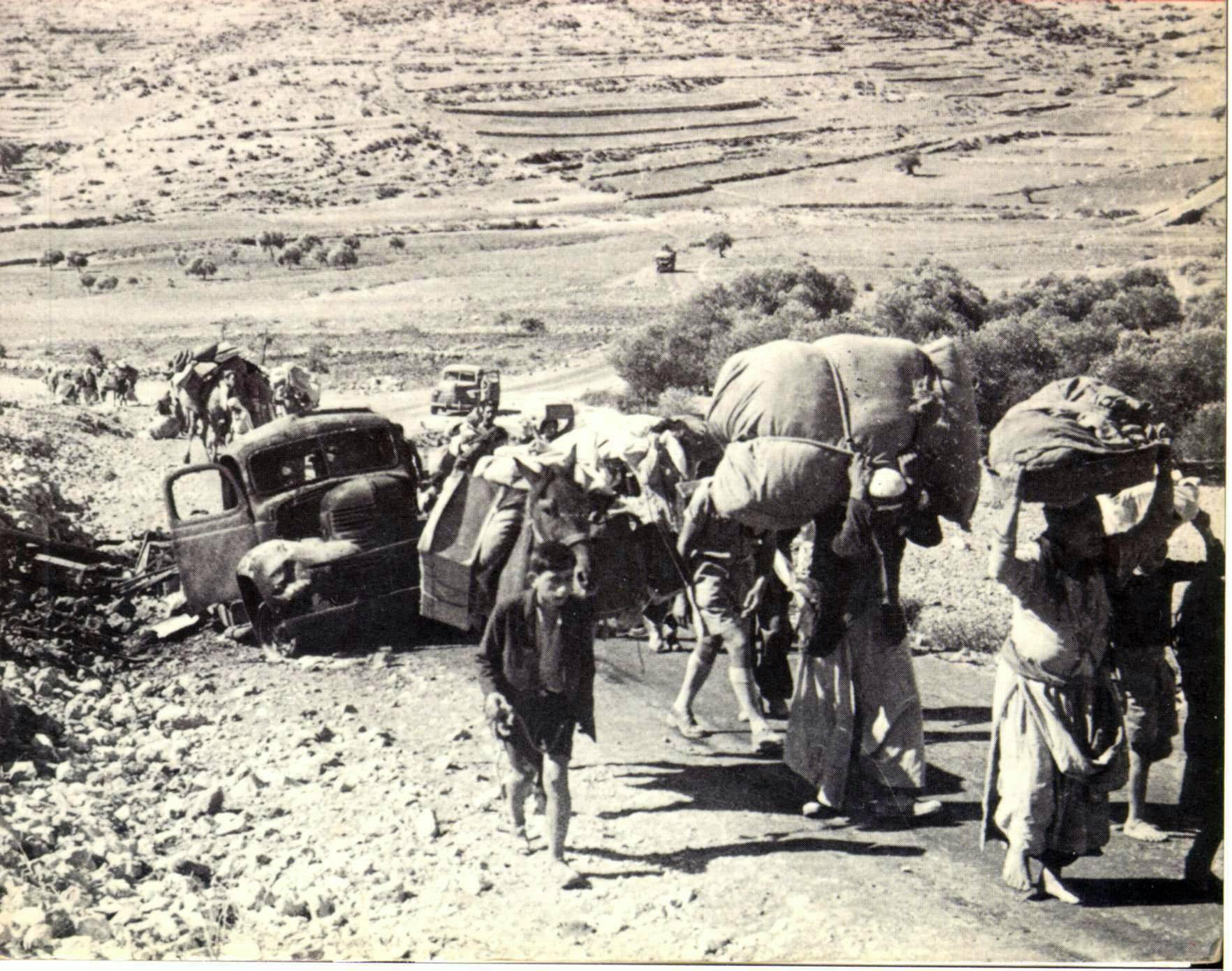Sixties Fan
Diamond Member
- Mar 6, 2017
- 67,679
- 12,087
- 2,290

Bazman Hazeh, the Miracles of Modern Israel: My 2019 Yom HaAtzmaut lecture (audio with notes)
Blogging about Israel and the Arab world since, oh, forever.
Follow along with the video below to see how to install our site as a web app on your home screen.
Note: This feature may not be available in some browsers.


 jewishjournal.com
jewishjournal.com


Encouragement by Arab Leaders and Rumors - A study by Childers, which examined British monitoring of Arab broadcasts during that period, did not find any evidence that Arab leaders called on Palestinians to leave their homes. However, considerable evidence and testimony exists that at different times, Arab leaders encouraged refugees to flee. This issue has been inflated beyond its actual importance. It has no real significance in international law, except to counter or support the Palestinian claims of expulsion by force.
During a fact-finding mission to Gaza in June 1949, Sir John Troutbeck, head of the British Middle East office in Cairo and no friend to Israel or the Jews, found that while the refugees "express no bitterness against the Jews (or for that matter against the Americans or ourselves) they speak with the utmost bitterness of the Egyptians and other Arab states. "We know who our enemies are," they will say, and they are referring to their Arab brothers who, they declare, persuaded them unnecessarily to leave their home. . . ."
The Economist, reported on October 2, 1948: "Of the 62,000 Arabs who formerly lived in Haifa not more than 5,000 or 6,000 remained. Various factors influenced their decision to seek safety in flight. There is but little doubt that the most potent of the factors were the announcements made over the air by the Higher Arab Executive, urging the Arabs to quit....It was clearly intimated that those Arabs who remained in Haifa and accepted Jewish protection would be regarded as renegades."
Times Magazine (May 3, 1948) reported: "The mass evacuation, prompted partly by fear, partly by orders of Arab leaders, left the Arab quarter of Haifa a ghost city....By withdrawing Arab workers their leaders hoped to paralyze Haifa."
Edward Atiyah, the secretary of the Arab League Office in London, wrote in his book, The Arabs: "This wholesale exodus was due partly to the belief of the Arabs, encouraged by the boastings of an unrealistic Arabic press and the irresponsible utterances of some of the Arab leaders that it could be only a matter of weeks before the Jews were defeated by the armies of the Arab States and the Palestinian Arabs enabled to reenter and retake possession of their country."

Not mentioned was the fact that the Palestinian Citizenship Order of 1925 gave Palestinians who were out of country for business, education, employment, etc., 3 years to return to Palestine to claim their citizenship.Which was preceded by as many as a hundred thousand more illegal Arab immigrants in the late 1920s (with one arguing that the 1922 census
What do all of these people have in common?
They are all considered “Palestinians” today, and to have lived in Palestine for centuries beforehand.
In fact, a significant number of Arabs who lived in Palestine in 1948 were there for far less time than the 72 years since.
(full article online)

British census in 1922 says that lots of Arabs came to Beersheva from Transjordan and Arabia
Blogging about Israel and the Arab world since, oh, forever.elderofziyon.blogspot.com
Not mentioned was the fact that the Palestinian Citizenship Order of 1925 gave Palestinians who were out of country for business, education, employment, etc., 3 years to return to Palestine to claim their citizenship.Which was preceded by as many as a hundred thousand more illegal Arab immigrants in the late 1920s (with one arguing that the 1922 census
What do all of these people have in common?
They are all considered “Palestinians” today, and to have lived in Palestine for centuries beforehand.
In fact, a significant number of Arabs who lived in Palestine in 1948 were there for far less time than the 72 years since.
(full article online)

British census in 1922 says that lots of Arabs came to Beersheva from Transjordan and Arabia
Blogging about Israel and the Arab world since, oh, forever.elderofziyon.blogspot.com
Drs. Rabab Abdulhadi and Linda Quiquivix speak on the Nakba at UCLA
Drs. Rabab Abdulhadi and Linda Quiquivix speak on the Nakba at UCLA
Definition of nakba: Arabs choose war against Israel, lose, and flee—and whine about it for almost three-quarters of a century to today.
Drs. Rabab Abdulhadi and Linda Quiquivix speak on the Nakba at UCLA
Definition of nakba: Arabs choose war against Israel, lose, and flee—and whine about it for almost three-quarters of a century to today.
Which Arabs?
Drs. Rabab Abdulhadi and Linda Quiquivix speak on the Nakba at UCLA
Definition of nakba: Arabs choose war against Israel, lose, and flee—and whine about it for almost three-quarters of a century to today.
Which Arabs?
